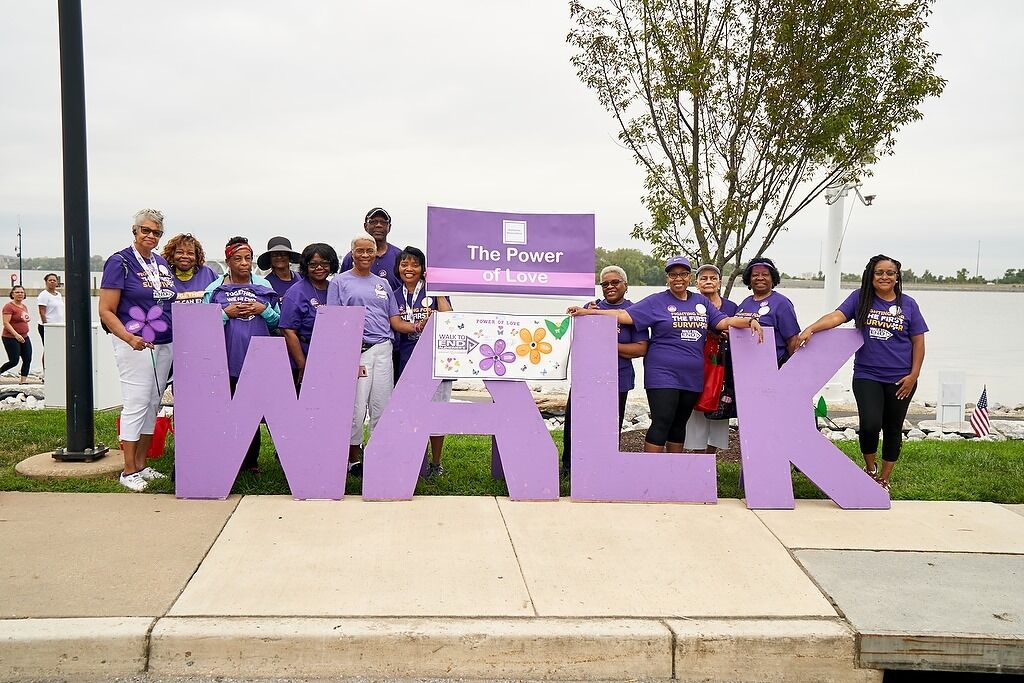
Whether its pandemic lockdown or a holiday visit, additional family time can raise awareness that loved ones may be suffering from Alzheimer’s disease.
In time with the holidays, November is National Alzheimer’s disease Awareness Month and Family Caregivers Month. A D.C. area advocate is urging people to know the signs of Alzheimer’s and get those close to them evaluated.
“They have seen signs happening with a loved one and they just thought it was maybe old age,” said Irma Nicholson, 70, of Upper Marlboro, Maryland. Nicholson is an advocate who volunteers with the Alzheimer’s Association.
She is also a caregiver for her husband Mark Nicholson, 80, who was diagnosed with Alzheimer’s 14 years ago.
“You need to learn the 10 warning signs about the disease because you’re not going to be able to effectively deal with the disease unless you understand what are some of the signs of the disease,” Nicholson said.
The Alzheimer’s Association website details the 10 signs and symptoms and how they differ from related issues that reflect typical age-related changes. Those symptoms are:
- Memory loss that disrupts daily life
- Challenges in planning or solving problems
- Difficulty completing familiar tasks
- Confusion with time or place
- Trouble understanding visual images and spatial relationships
- New problems with words in speaking or writing
- Misplacing things and losing the ability to retrace steps
- Decreased or poor judgment
- Withdrawal from work or social activities
- Changes in mood and personality
During the pandemic, while many families were spending extra time in closed quarters, Nicholson worked with two local support groups. In that time, she made observations about conditions that were previously unidentified and untreated. It also reflects what tends to happen around the holidays.
Cindy Schelhorn, Senior Director for Communications and Marketing at the Alzheimer’s Association, says these troubling observations are common around the holidays.
“This time of year, signs of memory impairment often are noticed when people visit loved ones for the holidays and haven’t seen them in a while,” Schelhorn said.
“As families were confined during pandemic ‘lockdown’ — working from home, moving in to help with an older relative or friend, etc. — symptoms of memory loss would become evident much more quickly, as families would see changes the loved one’s daily routines, behaviors and interactions,” Schelhorn said.
There are basic cognitive tests that can help determine if someone should be referred to a neurologist for an Alzheimer’s evaluation. These tests usually typically involve a series of questions related to current events, situations and memory.
Nicholson says urging people to get evaluated for Alzheimer’s will help families make better, earlier decisions if their loved one is, in fact, diagnosed. It also allows people to explore all the right questions.
“Am I going to be able to take care of my loved one myself? Am I going to need to get help [such as medication] from a doctor? Am I going to have to put my loved one in that facility?'” Nicholson asked rhetorically.
Nicholson also had tips for caregivers, themselves:
- Don’t hesitate to ask for help from family members and tell them about your situation.
- Make use of the Alzheimer’s 24/7 helpline that can be reached at 800.272.3900.
- Realize support groups are helpful and its worth the time to find the right fit.
“Not every support group is going to be right for you,” Schelhorn said. “So you might have to go to maybe one or two to see what is right for you.”
And, of utmost importance for caregivers, is to practice self-care.
“You need to take some time for yourself, taking some time away from your loved ones, because everyone gets overwhelmed to a point,” Nicholson advised. “Even ask a loved one, family or friend if they could take that loved one and take care of them for a few days so that you can take care of yourself”
The Alzheimer’s Association offers respite care, which provides temporary relief for caregivers under stress.
And, as there are signs for Alzheimer’s disease itself, the Alzheimer’s Association wants people to recognize that there are also common signs of caregiver stress. They are:
- Denial about the disease and its effect on the person who has been diagnosed
- Anger at the person with Alzheimer’s or frustration that he or she can’t do the things they used to be able to do
- Socially withdrawing from friends and activities that used to make you feel good
- Anxiety about the future and facing another day
- Depression that breaks your spirit and affects your ability to cope
- Exhaustion that makes it nearly impossible to complete necessary daily tasks
- Sleeplessness caused by a never-ending list of concerns
- Irritability that leads to moodiness and triggers negative responses and actions
- Lack of concentration that makes it difficult to perform familiar tasks
- Health problems that begin to take a mental and physical toll
Tips for managing caregiver stress can be found on the group’s website.








